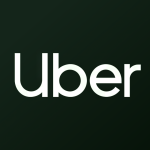Welcome to our dedicated page for Uber Technologies news (Ticker: UBER), a resource for investors and traders seeking the latest updates and insights on Uber Technologies stock.
Uber Technologies, Inc. (UBER) operates a global platform powering ride-hailing, food delivery, and logistics services across 70+ countries. This page aggregates official company announcements, financial disclosures, and strategic developments for stakeholders tracking its evolving role in urban mobility.
Investors and industry observers will find curated press releases covering quarterly earnings, partnership launches, technology innovations, and regulatory updates. Content spans Uber's core operations in transportation networks, Uber Eats expansion, freight logistics solutions, and emerging mobility initiatives.
All materials are sourced directly from Uber's investor relations team and verified news outlets to ensure reliability. The chronological organization enables efficient tracking of operational milestones and market positioning shifts. Bookmark this page for streamlined access to updates influencing Uber's performance in the competitive on-demand services sector.
Uber Eats (NYSE:UBER) has announced a significant expansion of its grocery delivery service through new partnerships with several beloved regional grocery chains. The expansion includes partnerships with Big Y and King Kullen in the Northeast, Superlo Foods, Lunds & Byerlys, and Foxtrot in the Midwest and Texas, and Vallarta Supermarkets in California.
Each retailer brings unique offerings to the platform, from Big Y's local grower partnerships to Vallarta's Latin American products. The expansion builds on Uber Eats' existing relationships with national grocery groups while addressing regional preferences. According to Hashim Amin, Head of Grocery & Retail for North America at Uber, the company aims to provide customers with both national brands and trusted local retailers.
These new additions join existing regional partners including Meijer, The Fresh Market, Cub Foods, Giant Eagle, and others, strengthening Uber Eats' position in the grocery delivery market as consumer demand continues to rise.
Uber Technologies (NYSE: UBER) and Turo have announced a significant partnership, integrating Turo's peer-to-peer car sharing marketplace into the Uber Rent platform across the United States. The collaboration allows Uber users to access and rent from Turo's diverse fleet of over 1,600 vehicle makes and models directly through the Uber app.
The integration requires users to download the Turo app for trip management and host communication. Starting summer 2025, Uber One members will earn 10% credits on Uber Rent bookings, including Turo rentals. The service will be available nationwide, except for Oregon, New York, and Washington.
This strategic partnership aims to modernize vehicle access and reduce traditional car ownership dependency by providing more flexible rental options within Uber's ecosystem.Uber (NYSE: UBER) and iFood have announced a strategic partnership in Brazil, integrating their services across both platforms. The collaboration will enable iFood users to book Uber rides directly through a new Mobility tab, while Uber users will access iFood's delivery services (food, grocery, pharmacy, and convenience) through the Uber app's Delivery tab.
Currently, only about half of iFood and Uber customers in Brazil use both platforms, presenting significant growth potential. The integration will begin rolling out in select Brazilian cities during H2 2025, with nationwide expansion planned thereafter. Both companies' membership programs (Uber One and Clube iFood) will remain unchanged initially, though joint membership initiatives are under consideration.
Uber Technologies (NYSE: UBER) has announced the pricing of $1.0 billion in 0.0% Exchangeable Senior Notes due 2028, with an additional option for $150 million. The notes, set to mature on May 15, 2028, will be exchangeable into cash or shares of Aurora Innovation Class A common stock at an initial exchange rate of 117.6471 units per $1,000 (equivalent to $8.50 per Aurora share). The notes will be secured by first-priority liens on pledged Aurora common stock and guaranteed by Uber's subsidiary Neben Holdings.
The offering is expected to close on May 20, 2025, with estimated net proceeds of $978.9 million (or $1,125.9 million if the additional option is exercised). Uber plans to use the proceeds for general corporate purposes, including potential strategic investments. The notes can be redeemed by Uber after May 21, 2027, under specific conditions.
Uber Technologies (UBER) has announced plans to offer $1.0 billion in Exchangeable Senior Notes due 2028 through a private placement to qualified institutional buyers. The notes will be exchangeable into cash or shares of Aurora Innovation's Class A common stock, or a combination of both, at Uber's discretion. The company also plans to grant the initial purchaser an option for an additional $150 million in notes.
The notes will be secured by first-priority liens on pledged reference property held by Uber's subsidiary, Neben Holdings, LLC, which will initially consist of Aurora common stock. Uber intends to use the proceeds for general corporate purposes, including potential strategic investments, though no specific uses have been designated.


